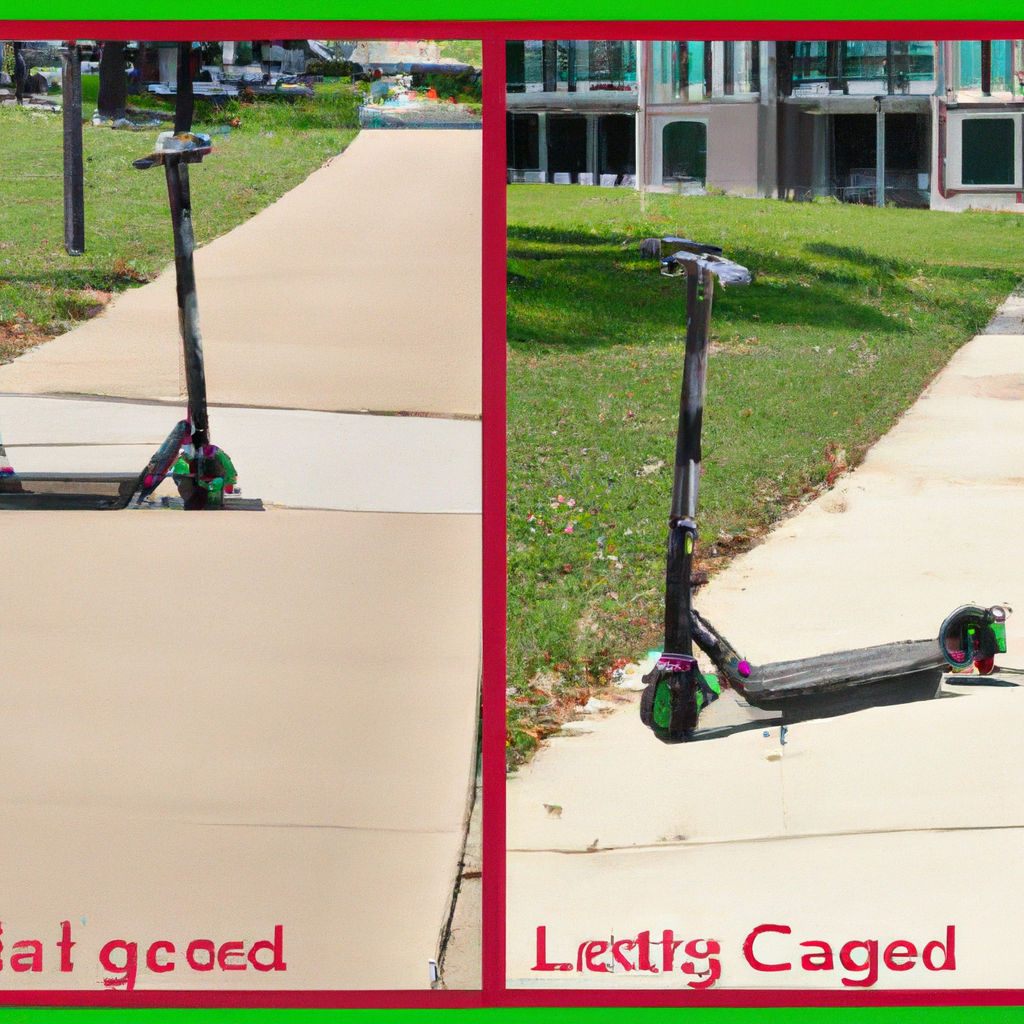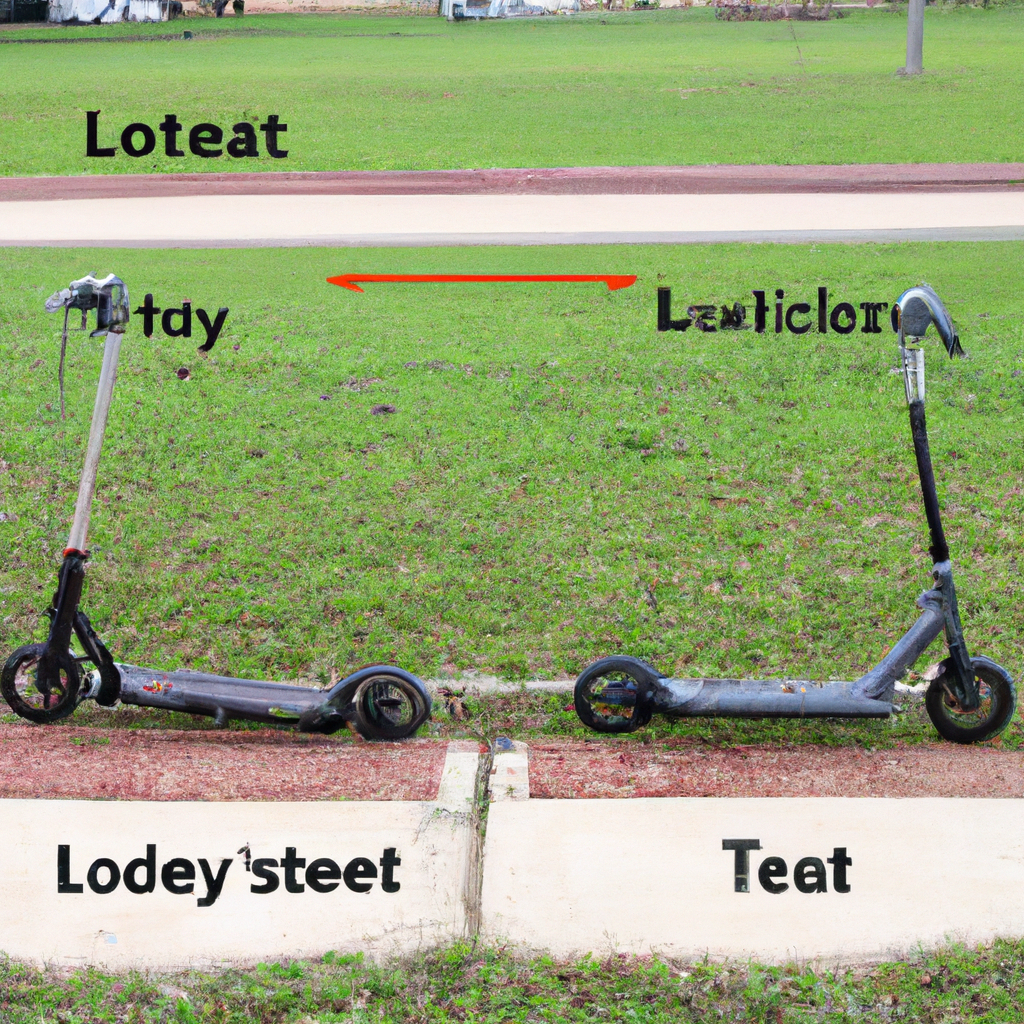So you’ve finally decided to hop on the electric scooter trend and zip around town in style, but before you go zooming off on your two-wheeled adventure, it’s important to check if these trendy rides are actually legal in your city or state. With the rise of electric scooter popularity, there has been a surge in regulations and restrictions that vary from place to place. From local ordinances to statewide laws, it’s crucial to familiarize yourself with the legalities surrounding electric scooters in your area. Let’s dive into this buzzing topic and unravel whether you can joyfully cruise through your city streets or need to find another way to get around.

General Overview
Electric scooters, also known as e-scooters, are battery-powered vehicles that have gained immense popularity in recent years. They are a convenient and eco-friendly mode of transportation, providing an alternative to traditional methods of commuting. These compact and portable scooters offer a fun and efficient way to navigate through busy urban areas, making them a preferred choice for many individuals.
Laws and Regulations
With the increasing popularity of electric scooters, it’s important to be aware of the laws and regulations surrounding their use. These regulations vary depending on the level of government, including federal, state, and city-specific regulations. Understanding these rules is crucial to ensure a safe and legal riding experience.
Federal regulations for electric scooters
At the federal level, there is no specific regulation that governs the use of electric scooters. However, the Consumer Product Safety Commission (CPSC) has established voluntary safety standards for electric scooters. These standards focus on manufacturing requirements and safety guidelines, such as maximum speed limits and braking capabilities, to ensure the safe design and production of these vehicles.
State regulations for electric scooters
When it comes to electric scooter regulations, each state has the authority to establish its own set of rules. Some states have implemented specific laws regarding the use of electric scooters on public roads, sidewalks, and bike lanes. These regulations may include requirements for licensing, registration, and safety equipment, as well as restrictions on where and how electric scooters can be operated.
City-specific regulations for electric scooters
In addition to federal and state regulations, many cities have adopted their own ordinances to address the growing popularity of electric scooters. These regulations typically cover specific areas where electric scooters can be used, such as roads, sidewalks, and bike lanes. Some cities have limited or even banned electric scooters altogether, while others have implemented designated parking areas and operational guidelines to ensure the safety and proper use of these vehicles.
Electric Scooter Use on Roads
Electric scooters are allowed on certain types of roads, but restrictions may apply depending on the jurisdiction. In general, electric scooters are suitable for roads with lower speed limits, such as residential streets and designated bike lanes. It is essential to familiarize yourself with local regulations to determine which roads are permissible for electric scooter use.
Speed limits for electric scooters on roads
The maximum speed limit for electric scooters on roads varies depending on the jurisdiction and type of road. In many places, the speed limit for electric scooters tends to align with the speed limit for bicycles, typically ranging between 15 to 20 miles per hour. However, it is crucial to observe the specific regulations of your city or state to ensure compliance.
Rules for sharing the road with electric scooters
When sharing the road with electric scooters, it is important to treat them like any other vehicle. This means following traffic laws, obeying signals and signs, and maintaining proper distance. Motorists should be cautious when overtaking electric scooters and should provide them with sufficient space and consideration to ensure a safe coexistence on the road.
Electric Scooter Use on Sidewalks
The use of electric scooters on sidewalks is another area where regulations come into play. Sidewalk regulations vary by jurisdiction, and it is essential to familiarize yourself with the rules specific to your city or state.
Speed limits for electric scooters on sidewalks
In most cities, electric scooters are either prohibited on sidewalks altogether or subject to low-speed limits, typically around 5 miles per hour. This ensures the safety of pedestrians who primarily use sidewalks and prevents potential accidents or collisions.
Pedestrian rights when interacting with electric scooters
When operating an electric scooter on a sidewalk, it is vital to prioritize the safety and comfort of pedestrians. Riders should yield to pedestrians, maintain a reasonable speed, and announce their presence, if necessary, to avoid surprising or endangering those walking or using the sidewalk. Pedestrians should also be aware of their surroundings and exercise caution when sharing the sidewalk with electric scooters.

Electric Scooter Use on Bike Lanes
Bike lanes provide a designated area for cyclists and, in some cases, electric scooter riders to travel safely. However, regulations concerning electric scooters in bike lanes may vary depending on the jurisdiction.
Use of bike lanes by electric scooters
In some cities, electric scooter riders are allowed to use bike lanes as an alternative to riding on roads or sidewalks. This helps maintain a smooth flow of traffic and ensures the safety of both electric scooter riders and cyclists.
Rules for sharing bike lanes with electric scooters
When sharing bike lanes with electric scooters, it is crucial to follow the same rules that apply to cyclists. This includes maintaining a reasonable speed, signaling turns, and yielding to faster-moving vehicles when necessary. Electric scooter riders should be mindful of cyclists and give them enough space to pass safely.
Segregation of electric scooters from bicycles in bike lanes
In certain cities, electric scooters and bicycles may be required to remain separate within bike lanes. This can be achieved through designated lanes or markings that clearly differentiate between the two modes of transportation. Segregation helps prevent conflicts and ensures the safety of all users.
Age and Licensing Requirements
To ensure the safe operation of electric scooters, various age and licensing requirements have been implemented across different jurisdictions.
Minimum age requirement for operating electric scooters
The minimum age requirement for operating an electric scooter varies depending on the jurisdiction. In many places, the minimum age is typically 16 years old. However, some areas may have higher or lower age limits, so it is crucial to familiarize yourself with the specific regulations in your city or state.
Licensing and registration requirements for electric scooter riders
While some jurisdictions require licensing and registration for electric scooter riders, others do not. In cities where these requirements exist, riders may need to obtain a valid driver’s license or a specific license for operating electric scooters. Additionally, some regions may require registration of electric scooters to ensure accountability and compliance with local regulations.
Permit requirements for operating electric scooters
Certain cities may require permits for operating electric scooters as an additional layer of regulation and control. These permits often involve completing a registration process and paying a fee to obtain authorization for riding an electric scooter within the city limits. It is essential to check if your city has any specific permit requirements.

Safety Equipment
Safety should always be a top priority when operating any type of vehicle, including electric scooters. To ensure a safe riding experience, various safety equipment requirements and recommendations are in place.
Helmet requirements for electric scooter riders
Many cities and states have implemented helmet requirements for electric scooter riders, especially for minors. Wearing a helmet helps protect against head injuries and should be considered an essential piece of safety equipment, regardless of whether it is legally mandated or not.
Additional safety equipment recommendations
While helmet use is the primary safety consideration, riders are encouraged to use additional safety equipment such as knee and elbow pads, reflective clothing, and lights. These measures enhance visibility, protect against potential injuries, and contribute to the overall safety of electric scooter riders.
Parking and Storage Regulations
Proper parking and storage of electric scooters are essential to maintain orderly and accessible public spaces. Many cities have established regulations to address this aspect of electric scooter usage.
Designated parking areas for electric scooters
In some cities, designated parking areas have been created specifically for electric scooters. These areas are typically marked and strategically located to ensure convenience for riders while minimizing obstructions and hazards for pedestrians.
Guidelines for parking electric scooters
When parking electric scooters, riders should follow specific guidelines set by the city or state. These may include rules such as parking within designated areas, not blocking pedestrian walkways, and ensuring the scooter is properly secured and not posing a safety hazard.
Penalties for improper parking of electric scooters
Penalties for improper parking of electric scooters vary depending on the jurisdiction. Violations may result in fines, impoundment of the scooter, or other penalties. To avoid these consequences, riders should familiarize themselves with the parking regulations in their city and adhere to them diligently.

Public Perception and Concerns
The rise of electric scooters has generated diverse opinions among the general public and raised concerns related to safety and urban mobility.
Public opinion on electric scooters
Public opinion on electric scooters is divided. Some individuals see them as a convenient and eco-friendly mode of transportation, reducing traffic congestion and emissions. Others have concerns about safety, improper parking, and the impact on pedestrian spaces.
Controversies surrounding electric scooter use
Controversies surrounding electric scooter use revolve around issues such as accidents involving pedestrians, improper parking, and clashes with cyclists. These controversies have prompted many cities to implement stricter regulations in an attempt to address these concerns.
Support for implementing stricter regulations
In response to safety concerns and urban management challenges, there is growing support for implementing stricter regulations regarding electric scooter use. These regulations aim to improve safety, alleviate congestion, and ensure responsible usage of electric scooters within cities.
Enforcement and Penalties
Enforcing electric scooter regulations and imposing penalties for violations is crucial to maintaining order and ensuring compliance with the rules.
Enforcement of electric scooter regulations
Enforcement of electric scooter regulations is the responsibility of local law enforcement agencies. They are responsible for monitoring compliance, issuing citations, and taking appropriate action against violators to maintain safety on the roads, bike lanes, and sidewalks.
Common penalties for violating electric scooter laws
Common penalties for violating electric scooter laws include fines, points on driving records, impoundment of the scooter, and even suspension or revocation of the rider’s driver’s license, depending on the severity of the offense and the local regulations.
Legal consequences of accidents involving electric scooters
Legal consequences arising from accidents involving electric scooters can vary depending on the circumstances and the specific laws of the jurisdiction. Riders involved in accidents may be liable for damages and injuries caused to others, reinforcing the importance of responsible electric scooter usage and adherence to regulations.
In conclusion, electric scooters offer a convenient and eco-friendly mode of transportation that has gained popularity in recent years. However, it is crucial to be aware of the laws and regulations governing their use to ensure a safe and legal riding experience. Federal, state, and city-specific regulations dictate where and how electric scooters can be used, including on roads, sidewalks, and bike lanes. Age and licensing requirements, as well as safety equipment recommendations, must be adhered to for a responsible approach to electric scooter usage. Proper parking and storage, along with public perception and concerns, also play a significant role in shaping the regulations surrounding electric scooters. Enforcement and penalties are in place to maintain order and ensure compliance with these regulations, with legal consequences for accidents involving electric scooters. By understanding and following the rules, we can all contribute to the safe and efficient integration of electric scooters into our cities and communities.


